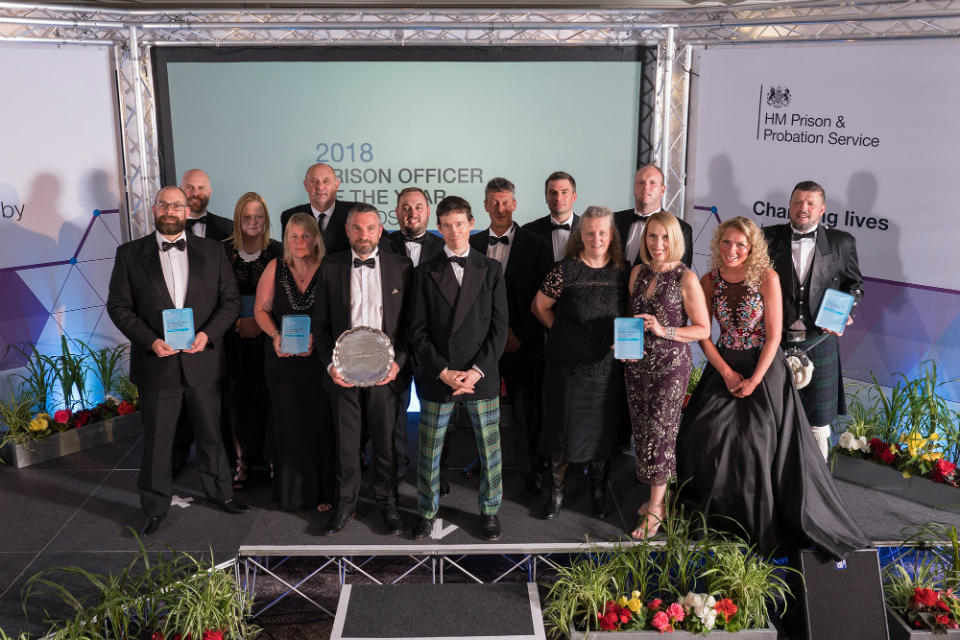Today’s annual meeting of Foreign and Defence Ministers demonstrates that the UK and Poland are delivering on their commitment to develop our partnership to be even stronger and even more strategic.
We took the opportunity of this meeting to celebrate the hundred years of Polish regained independence and a bilateral relationship that has vastly expanded over a century. During that time the UK and Poland have worked and fought side-by-side for freedom in Europe and the world. We remember the heroism of British and Polish soldiers, sailors and pilots throughout the Second World War and subsequent conflicts. Our countries have a strong trading relationship and deep cultural links through the thriving Polish community in the UK. We are active partners in international fora like the UN, OSCE, EU and NATO, and our troops serve together on the ground in Poland as part of NATO’s enhanced Forward Presence. Today we have discussed concrete ideas for how we can further enhance our strategic foreign, defence and security partnership.
As the hosts of the previous two NATO Summits, we share a deep commitment to the Alliance, and to a successful Summit in Brussels. NATO continues to adapt to the evolving security environment, having made good progress since 2014 in rebuilding and strengthening its Deterrence & Defence posture and Projecting Stability. The 2018 Summit is an important landmark in providing a modern, prepared and unified NATO. It will be an opportunity to review the progress made since Wales and Warsaw, demonstrate Allies’ unity, and agree the remaining steps ahead of NATO’s 70th anniversary in 2019. Ensuring the effectiveness of NATO’s deterrence and defence, including in the Eastern flank, is of vital importance for both countries. Our partnership in the area of security and defence continues to serve that purpose. Against this background, Poland and the UK stand for a timely and successful adaptation of the NATO Command Structure.
Both the UK and Poland are committed to meeting the NATO target of spending at least 2% of GDP on defence, and 20% of that on major equipment capabilities. We recognise the importance of increased defence spending across the Alliance. We also fully support NATO’s open door policy and the 2018 Summit offers an opportunity to recognise the progress made by aspirants, particularly as this year marks the 10th anniversary of decisions made at the Bucharest Summit. We recognize that Euro-Atlantic integration remains an important driving force of reforms in Georgia and Ukraine.
In order to build our collective capability to tackle hostile activity and hybrid threats, the UK and Poland will draw on the complementary experiences of NATO, EU and likeminded partners, ensuring a consistency in approach across multilateral fora to all forms of threats. We commit to strengthen resilience to Chemical, Biological, Radiological and Nuclear-related risks (CBRN), through practical cooperation including sharing information and lessons learnt. By coordinating the attribution of hostile activity in cyberspace and pushing for all available diplomatic tools to be used in response to cyber-attacks, we will raise the cost of malicious cyber activities. We will also explore new areas of innovation, and seek to harness the commercial cybersecurity opportunities they afford, by facilitating an exchange of ideas and expertise between British and Polish businesses.
Our two countries will enhance our strategic communications and develop strategies to reinforce our democracies, strengthen our societies’ resilience, and uphold freedom of expression and a free and independent media in the face of the disinformation threat. We will further continue to initiate joint actions aimed at supporting independent media in Eastern Partnership countries so as to build resilience to Russian disinformation and build plurality and balance across media landscapes. The UK and Poland will work together to tackle hybrid threats through NATO to improve crisis management, identify the tools available to hostile actors, and enhance resilience among NATO Allies and partners. The NATO-Ukraine Platform on Countering Hybrid Warfare can play an important role, and the UK and Poland will work to strengthen this instrument.
We remain committed to continuing our efforts aimed at stabilising the EU neighbourhood and handling various challenges on the Eastern and Southern flanks. The heightened risk from Russia and the bold pattern of its behaviour, designed to undermine the rules-based international order, concerns us greatly. We have worked hand-in-hand to shape Europe’s response to Russian aggression against Ukraine and hostile action. Russia’s hostility has seen it operating in more agile and asymmetric ways, be it the use of a nerve agent on the streets of Salisbury or cyber-attacks such as NotPetya in Ukraine. We agreed that the best response is to maintain pressure on Russia, including through sanctions, until the Minsk agreements are fully implemented and Russia abides by agreed international norms and standards.
Our discussions also focused on the dire situation in Syria, and we agreed to continue to champion urgent humanitarian access through the UN Security Council. We call on all parties to engage fully in the UN process in Geneva towards a credible political solution. We deplore the repeated use of chemical weapons by the regime and will use the special session of States Parties to the Chemical Weapons Convention later this month to reinforce global norms and work towards a new attribution mechanism for chemical weapons incidents. We also discussed Iran and, whilst remaining concerned about Iran’s ballistic missile programme and regional behaviour, we shared a desire to maintain both the JCPoA and Transatlantic unity. The UK and Poland continue to be close partners in the Council on numerous issues, and plan to host a joint event in New York later this year.
We reaffirm our shared commitment to the security, stability, prosperity and sovereignty of all six countries in the Western Balkans. The UK and Poland will continue our close cooperation in preparation for the 2018 and 2019 Berlin Process summits. In particular, we will explore joint projects and activities on priority themes, which include countering corruption, and resilience against disinformation and the malign activity of external actors. Foreign Ministers will make a joint visit to the region between our Summits. This will ensure continuity between the British and Polish Berlin Process summits as well as a lasting, positive impact in the Western Balkans region.
Alongside our foreign and security policy collaboration, we also agreed to deepen our bilateral defence cooperation. In December 2017 we signed a defence treaty that will elevate our bilateral cooperation in the areas of information exchange, collective defence, intelligence and technologies, military exercises and investment planning. In the past year we have also made steps in the development of bilateral capability collaboration projects. The Defence Capability and Industrial Dialogue has been supported by Ministerial and senior official engagement, and we will continue to discuss opportunities for both British and Polish companies.
We have signed the Plan for Bilateral Defence Cooperation for the year 2018, and continue to deliver these commitments; working together across a full range of activities, including in such thematic areas as enhanced interoperability of forces, promoting defence industries’ collaboration as well as bilateral visits and exchanges.
The UK and Poland continue to respond jointly to shared threats and hostile state activity. This includes leading discussions in multilateral organisations such as the Northern Group. This year, we both participate in two large scale exercises, SABER STRIKE and ANAKONDA 18 demonstrating the strength of our military cooperation and enduring commitment to Euro-Atlantic security. We are determined to participate in exercises aimed at restoring NATO’s ability to conduct large combat operations, including in the Eastern flank.



